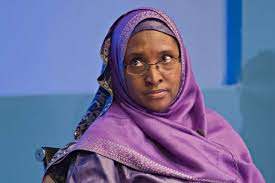By Jeph Ajobaju, Chief Copy Editor
Nigeria, which obtained yet another $1.5 billion loan from the World Bank last December, is expected to repay a $500 million Eurobond maturing this month, sourced from the international debt market.
Whatever Nigeria garners from lenders will be combined with proceeds of a local bond raised in Q4 2020 and the country is monitoring the debt market for new issues by frontier countries.
Debt Management Office (DMO) Director General, Patience Oniha, told Reuters that the country is also monitoring the terms of foreign bond and has no issues accessing dollars to repay the maturing bond.
African governments will return to international capital markets this year with Ghana, Kenya and Nigeria to issue bonds as investors once again are expected to embrace more risk, the Institute of International Finance has said.
Reuters reports that Nigeria is facing its worst recession in 40 years brought on by an oil price crash, which has hammered its currency, created large financing needs and caused chronic dollar shortages, frustrating businesses and individuals.
The government had planned a Eurobond issue early last year to fund its budget deficit and refinance the $500 million Eurobond before it decided to defer the sale due to the turmoil caused by the COVID-19 pandemic.
Nigeria held its last Eurobond sale in 2018, its sixth such issue, where it raised $2.86 billion.
Debts owed the World Bank
Nigeria’s debt owed to the World Bank rose by $1.3 billion in one year to $9.81 billion as of September 2019, according DMO data.
The World Bank approved in June 2020 an additional $750 million loan for the country’s power sector, the first release of funds after years of stalled talks over long-term reforms, the bank said.
In December 2020, the World Bank discussed a new five-year Country Partnership Framework (CPF) from 2021 to 2024 and approved a $1.5 billion package for Nigeria to help build a resilient recovery post-COVID19.
In granting the loan, the bank said “Nigeria is at a critical juncture. With the sharp fall in oil prices as a result of COVID-19, the economy is projected to contract by over 4 per cent in 2020, plunging the country into its deepest recession since the 1980s.
“Government revenues could fall by more than 15 billion dollars this year, and the crisis will push an additional 5 million Nigerians into poverty in 2020.”













